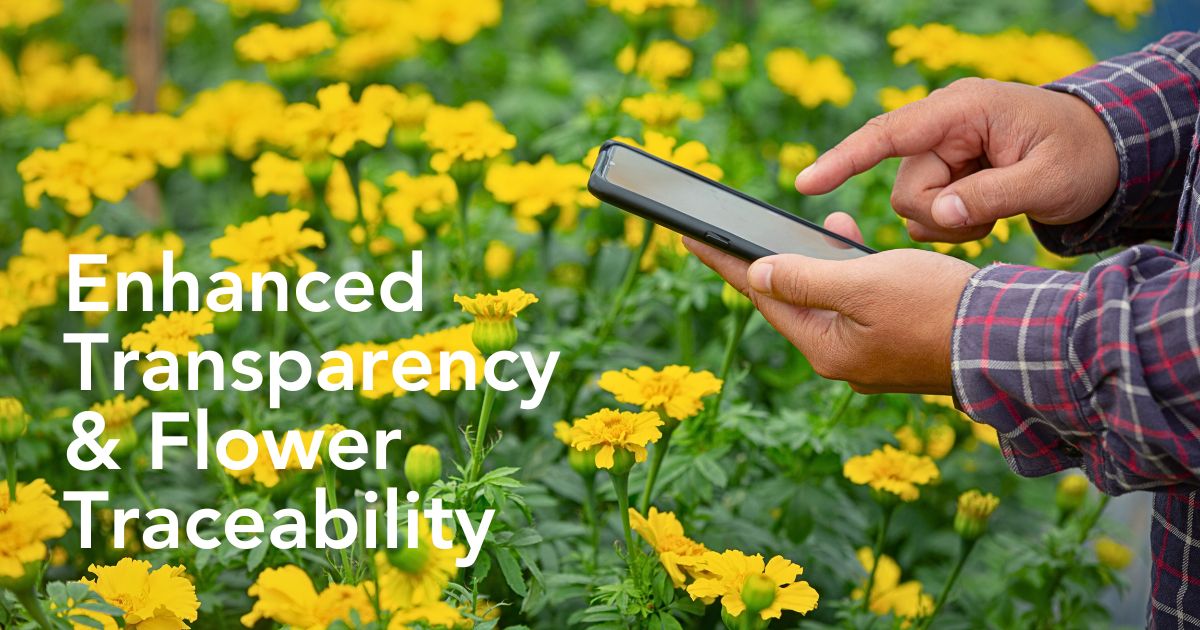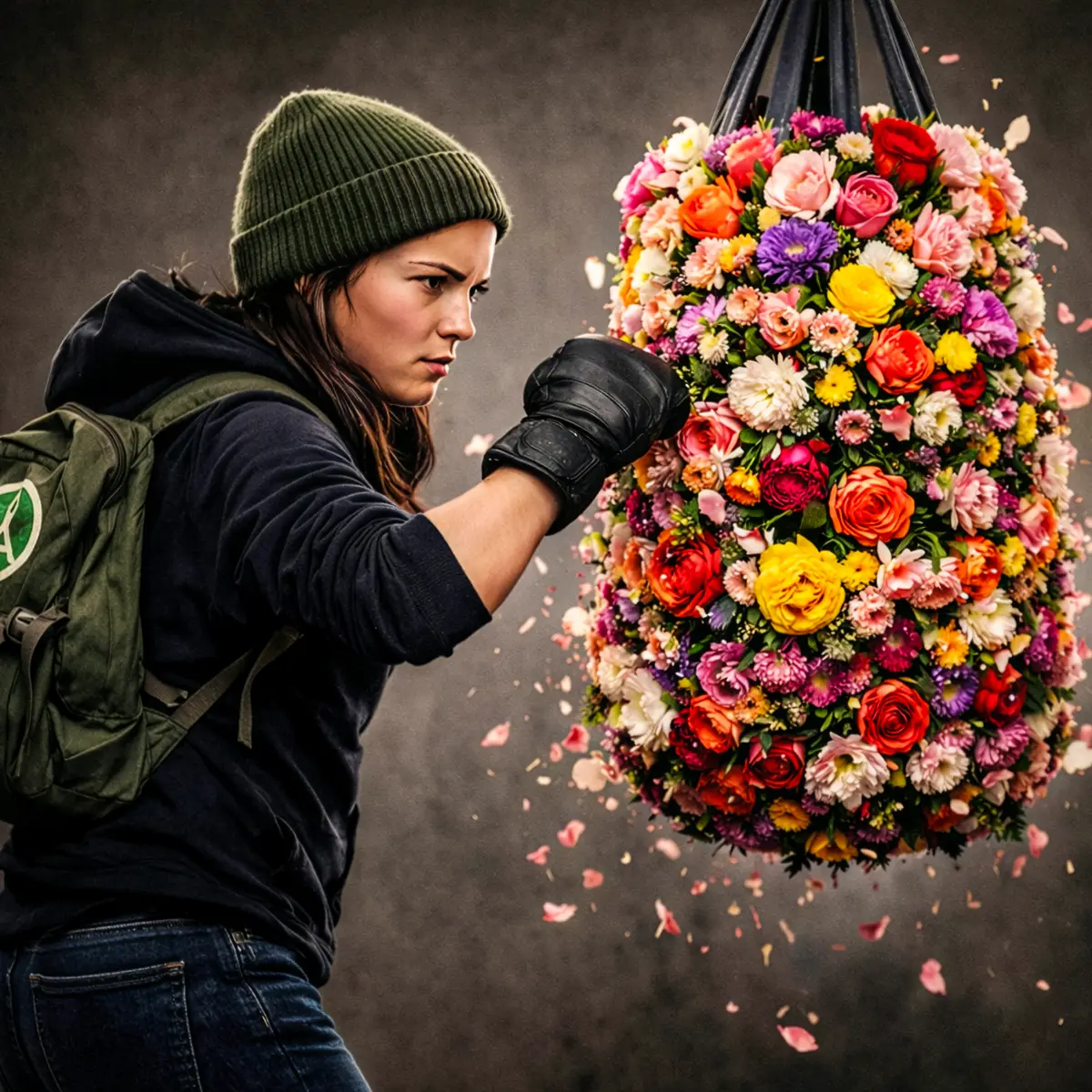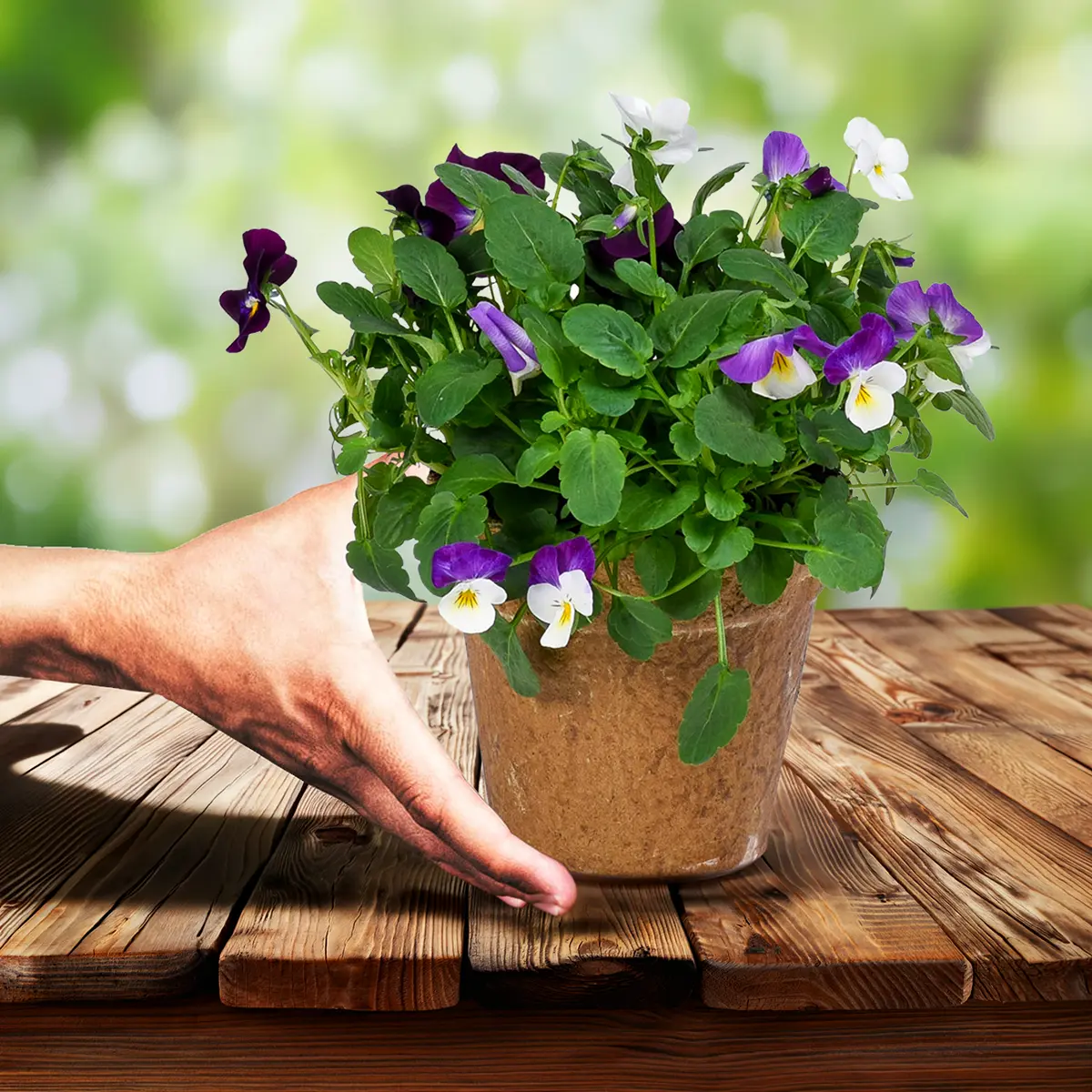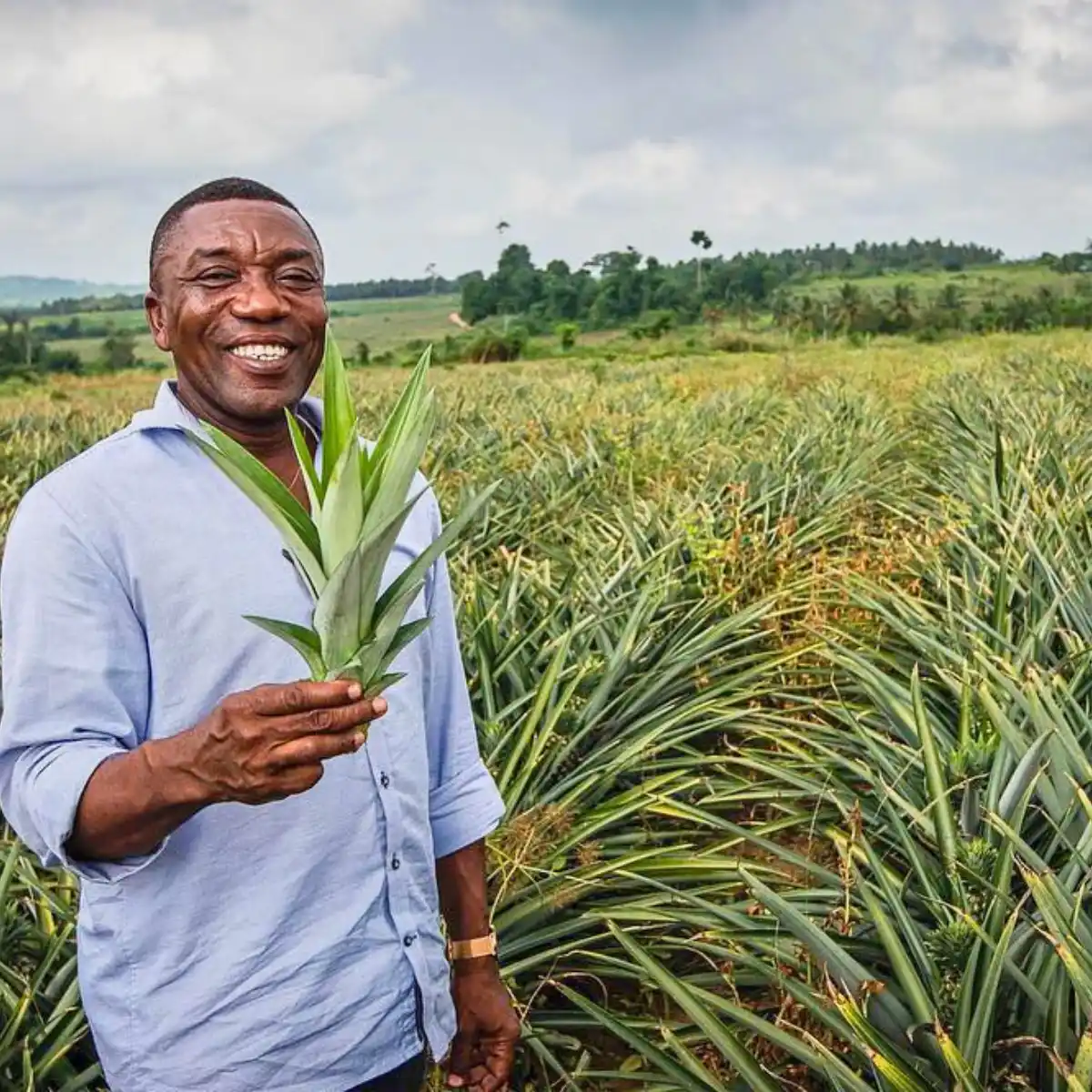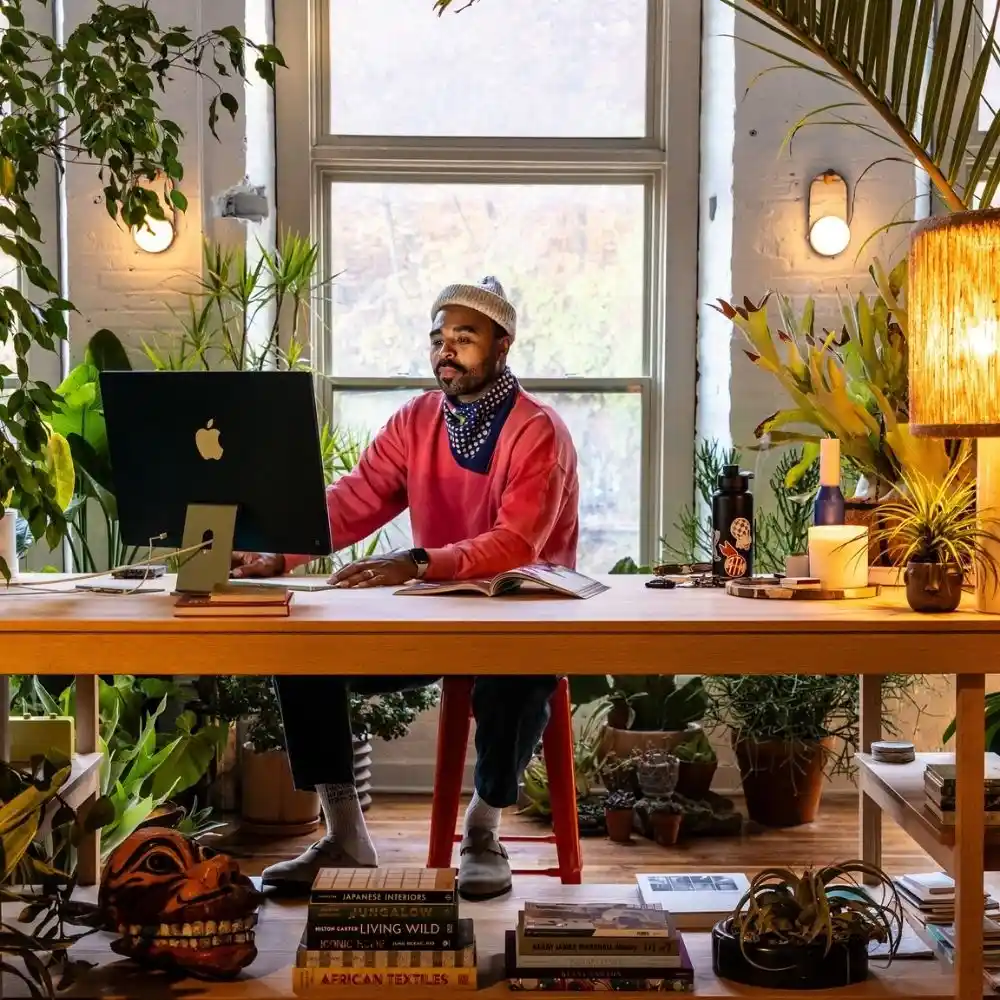Floriculture is an industry that is as delicate as it is intricate. Freshness, quality, and ethical sourcing are paramount. Blockchain, a technology incorporating a shared, distributed digital ledger that records transactions across a network of computers, making it secure, transparent, and resistant to tampering, is offering quite a solution, enabling the transparency and traceability required throughout the flower supply chain. The technology is essentially reshaping how growers, traders, retailers, and consumers interact, ushering in a new era of sustainable and ethical floriculture.
The global flower market is a sprawling, elaborate network that spans continents and involves multiple stakeholders, from breeders and growers to logistics providers and retailers. Being highly perishable goods, flowers require careful handling, with their quality being highly sensitive to conditions like temperature and humidity during transport. Traditional supply chains often rely on fragmented, centralized data systems that are prone to delays, errors, and even fraud, which makes it difficult to verify product origins or ensure compliance with sustainability standards.
Blockchain Technology’s Unique Attributes for Floriculture
Blockchain expert Lan van Wassenaer of Wageningen University & Research explained already in 2021: “Our vision is that in a blockchain network, participants with the correct authorisation can share all relevant information on a batch of pot plants with one press of the button and view this information across the whole chain.” This capability is crucial for building trust in agriculture, which also incorporates floriculture, where consumers increasingly demand proof of ethical sourcing and environmental management.
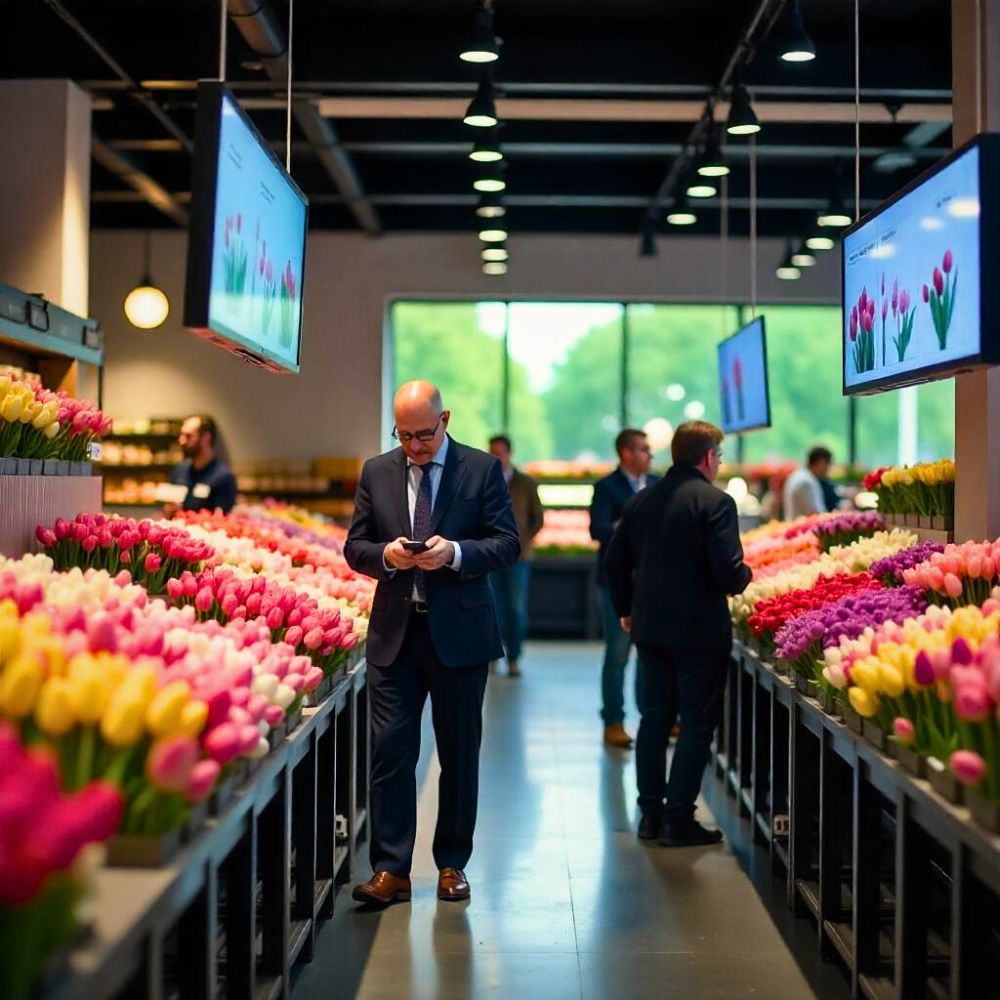
This technology’s decentralized, immutable ledger offers several key advantages for flower supply chains, which fundamentally transform how information is recorded, shared, and verified. Traceability is greatly enhanced as every transaction and movement of a flower batch is recorded on the blockchain and linked to previous records. This creates an unbroken chain of data that enables end-to-end tracking from breeder to consumer. This level of transparency allows all stakeholders to verify the origin, handling, and journey of flowers, which is critical for ensuring quality and ethical sourcing.
In his research document, Rishubh Motla, a research scholar in the Department of Floriculture and Landscape Architecture at Sardar Vallabhbhai Patel University of Agriculture and Technology, noted that with the technology, each flower can be assigned a unique identifier, and its journey from the farm to the consumer can be recorded on the blockchain.
Ribush Motla:
“This ensures that consumers can trace the origin of the flowers they purchase, including information about the grower, cultivation practices, and transportation details.”
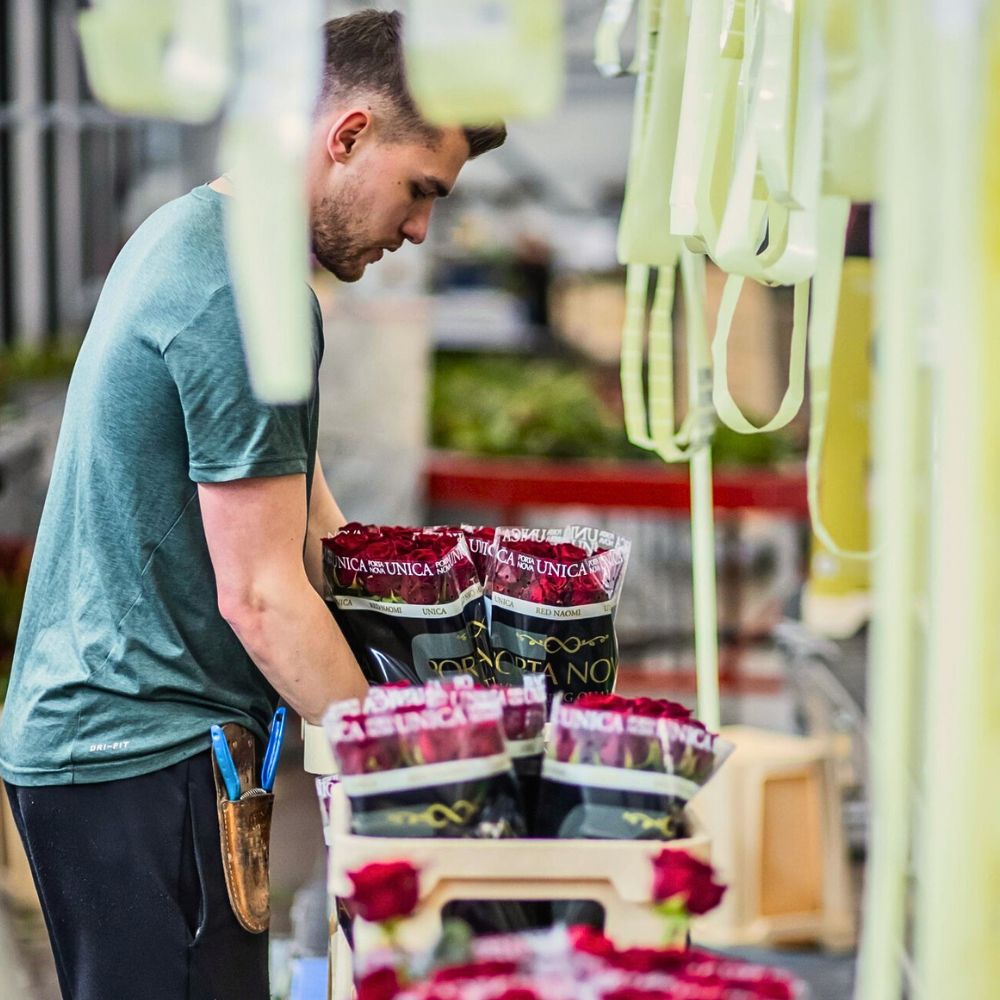
The decentralization of data means that information is shared across all authorized participants without relying on a single central authority, thus reducing bottlenecks and vulnerabilities associated with centralized databases, while increasing data integrity. Each participant can access and verify the same data in real time, which builds trust and collaboration throughout the supply chain.
Blockchain also provides security and immutability. Once data is recorded, it cannot be altered or deleted. This permanence ensures transparency and prevents fraud or tampering, which is especially important in verifying compliance with sustainability standards and preventing greenwashing. Still, yet, smart contracts—automated agreements encoded on the blockchain—can streamline payments and compliance checks. These self-executing contracts reduce administrative overhead by automatically triggering actions like releasing payments when certain conditions are met, hence ensuring timely transactions and adherence to agreed-upon standards.
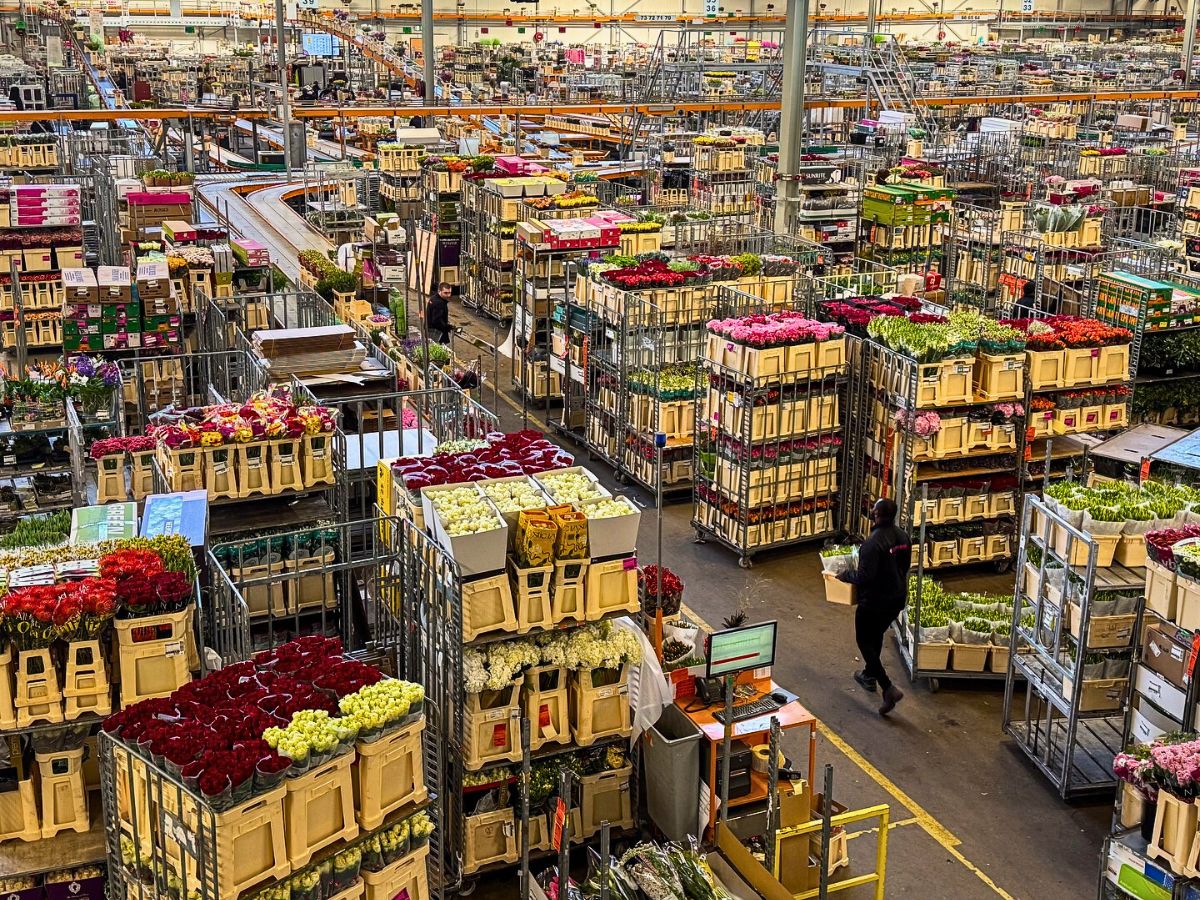
Furthermore, a recent study published in the Asia Pacific Management Review highlights how combining blockchain with Internet of Things (IoT) sensors, monitoring temperature, humidity, and handling conditions, can significantly improve quality assurance in the floral supply chain. The integration allows real-time updates on product status to be recorded on the blockchain, enhancing traceability and enabling automated payments through smart contracts tied to delivery conditions.
Application of Blockchain Technology in the Floriculture Industry
Several projects show blockchain’s potential in floriculture. Flori-Chain, a blockchain pilot in floricultural supply chains, which is part of the research and innovation project ‘Blockchain: Automated Compliance in Agrifood Chains’ of the Dutch horticultural sector. It enables breeders, growers, traders, and certification authorities to share verified data on crop protection agents used, audit results, and other compliance information, accessible throughout the supply chain. This transparency enables customers and consumers to make informed choices and supports growers in proving their adherence to sustainability standards, while also cultivating accountability among intermediaries, which in the end, reduces the risk of greenwashing or false claims.
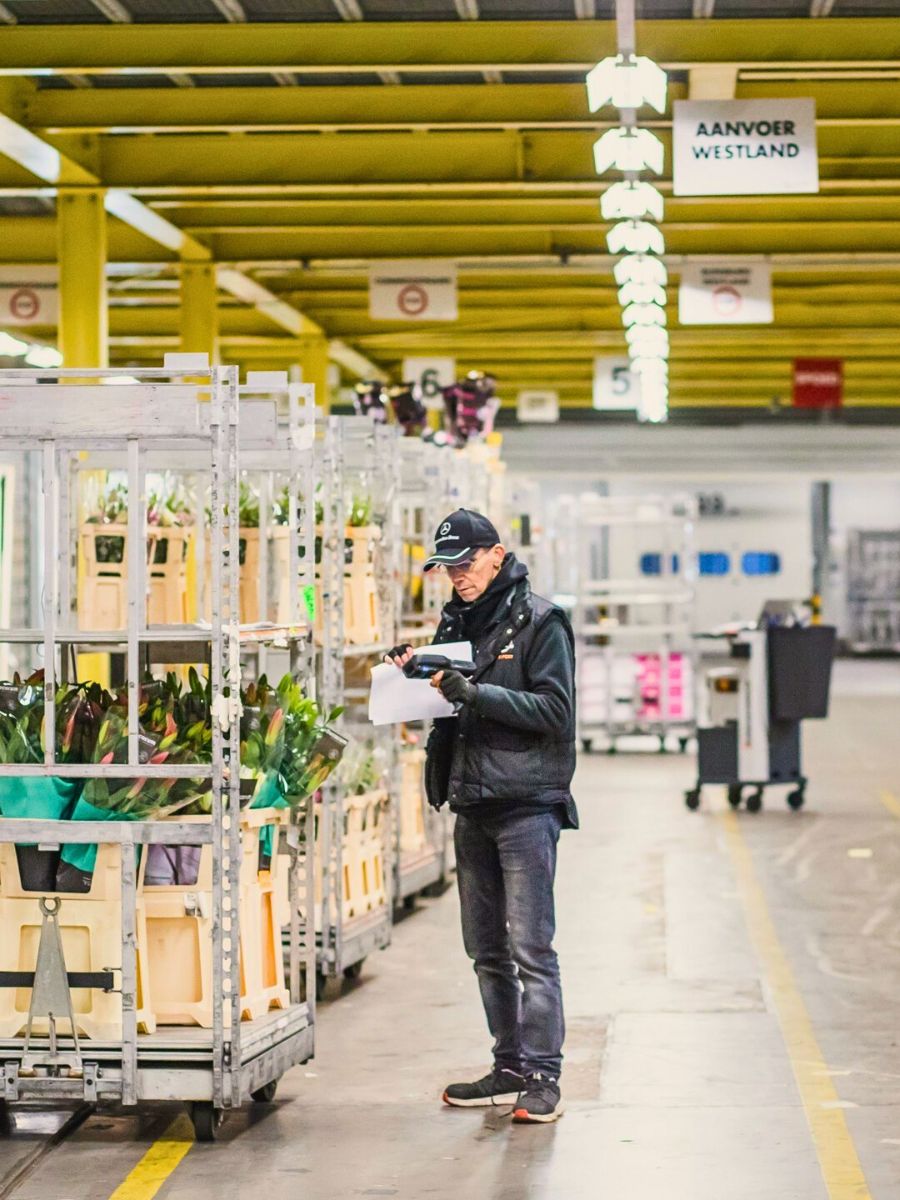
Henry Duckworth, the COO of AgriDex, a blockchain-based agriculture marketplace, also acknowledges the notion, noting that blockchain can make growers’ lives easier by cutting out intermediaries, reducing fraud, and enabling them to retain more profit. In Europe, blockchain is already being piloted to increase supply chain transparency. Ecuadorian grower Rio Roses also notes that while blockchain technology is still too new to know exactly how it will evolve, one thing is for sure: it will provide some significant benefits to the floral industry supply chain, and the biggest one will be transparency since every network participant will share data and information in real-time, from production to packing to shipping and delivery.
Blockchain, according to experts, essentially enables buyers to see detailed information such as the exact farm location, planting dates, harvest times, and shipment details. Soon, consumers may scan QR codes on flower packaging to access this data, making sourcing information much more. This transparency incentivizes growers to maintain high standards or risk losing market share.
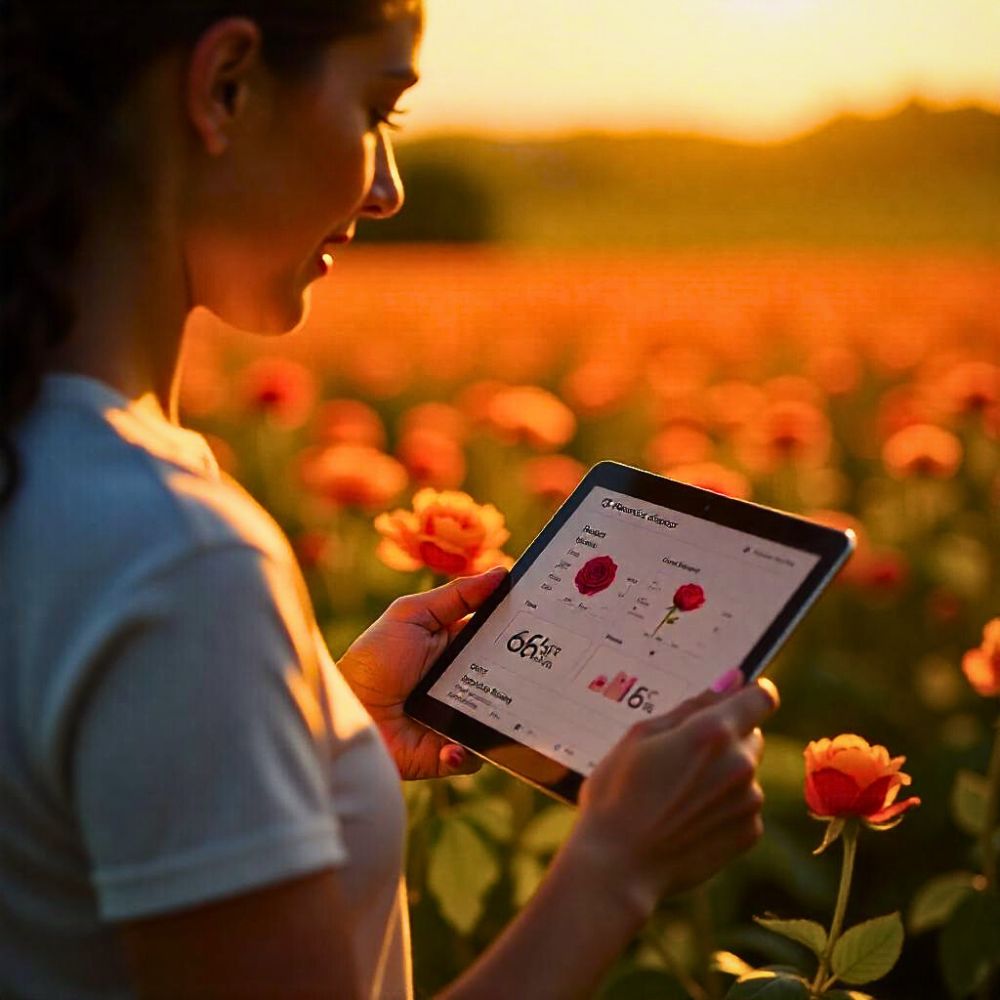

Furthermore, cryptocurrency, closely linked to blockchain, is also gaining traction in the floral sector. Some now accept Bitcoin and Ethereum as payment, facilitating faster, borderless transactions. As trust in digital currencies grows, blockchain-enabled payments could streamline financial flows across international flower supply chains. As Rio Roses notes, since Bitcoin has become such a trusted currency, more and more floral providers are accepting it as payment. Even more, because Bitcoin has become so stable, many individual florists are also now accepting it as a form of payment.
Rio Roses:
“And as the technology keeps improving and trust increases, we will see cryptocurrency accepted as a form of payment by growers, suppliers, and more. And it may sound like this is a future thing that will happen eventually, but that’s not the case. Think back to when e-commerce was in its infancy and how many people said they would “never purchase something online!” Just as that changed due to the increased security and trust online, so will cryptocurrency become a trusted form of payment.”

But aside from the physical flowers, blockchain is also revolutionizing floral art and design through non-fungible tokens (NFTs). Digital and NFT floral artworks, authenticated and traded on blockchain marketplaces like OpenSea and Rarible, provide artists with additional revenue streams while offering alternatives to real flowers. Luxury flower brands could experiment with NFT subscriptions that blend digital and physical floral experiences, while environmental organizations use NFT sales to fund conservation projects.
There Are Compelling Benefits, but Also Challenges
While blockchain offers many advantages, it is not a panacea. Experts caution about potential pitfalls like exacerbating power imbalances, disproportionately burdening small producers unfamiliar with the technology, and challenges in verifying data authenticity at the source. The initial costs of implementation and the need for digital literacy can also be barriers for smallholders. Moreover, blockchain’s effectiveness depends on widespread adoption and collaboration among all supply chain actors. Without comprehensive participation, data gaps and inconsistencies may arise and persist.
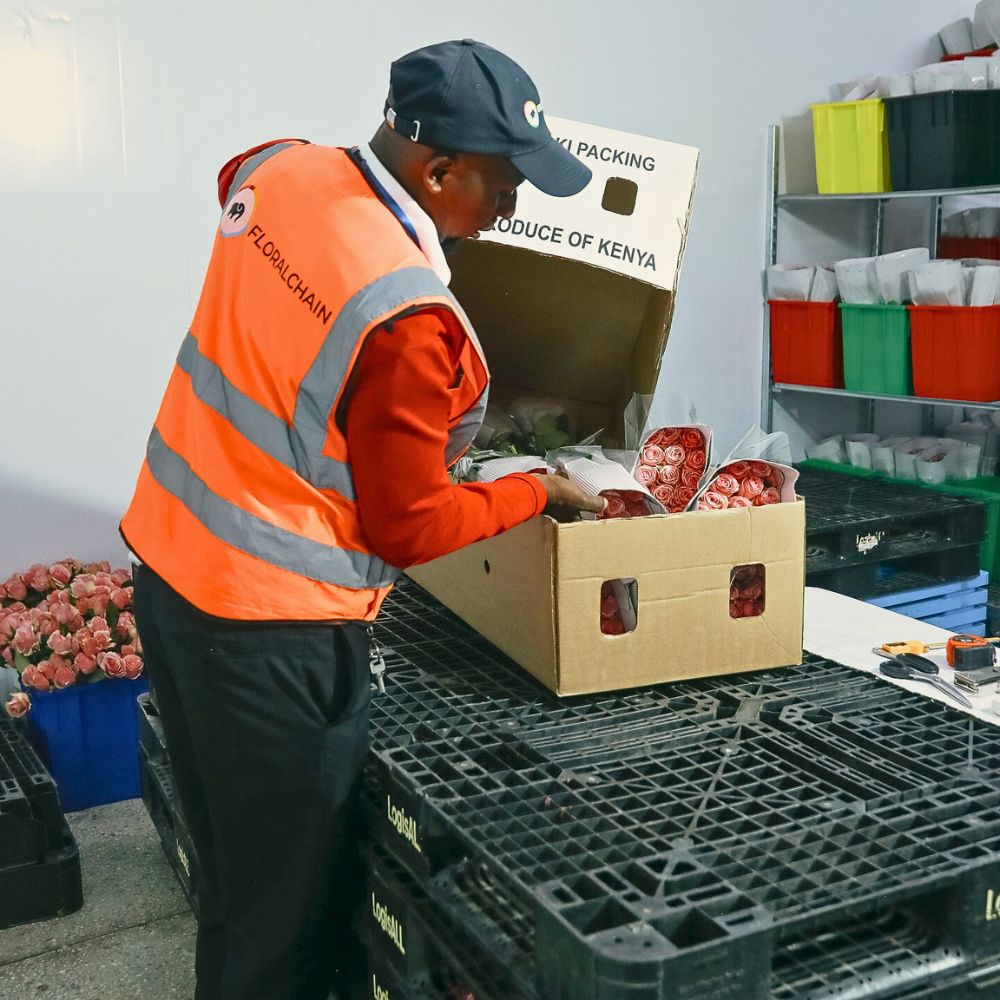
A Perfect Bet for Ethical and Sustainable Floriculture?
There, certainly, is a surge in consumer demand for sustainably and ethically sourced flowers. In many ways, blockchain is a crucial tool helping to meet the expectations of consumers by ensuring secure, transparent, and efficient data-sharing. The technology could therefore help the flower industry transition from opaque, fragmented supply chains to integrated systems that have in focus environmental and social responsibility.
Integrating blockchain with IoT, smart contracts, and digital marketplaces heralds quite a shift in the flower industry; one that not only enhances product quality and safety but also fundamentally rebalances power within the supply chain by granting growers, particularly smallholders, enhanced transparency and control over their products and revenues.
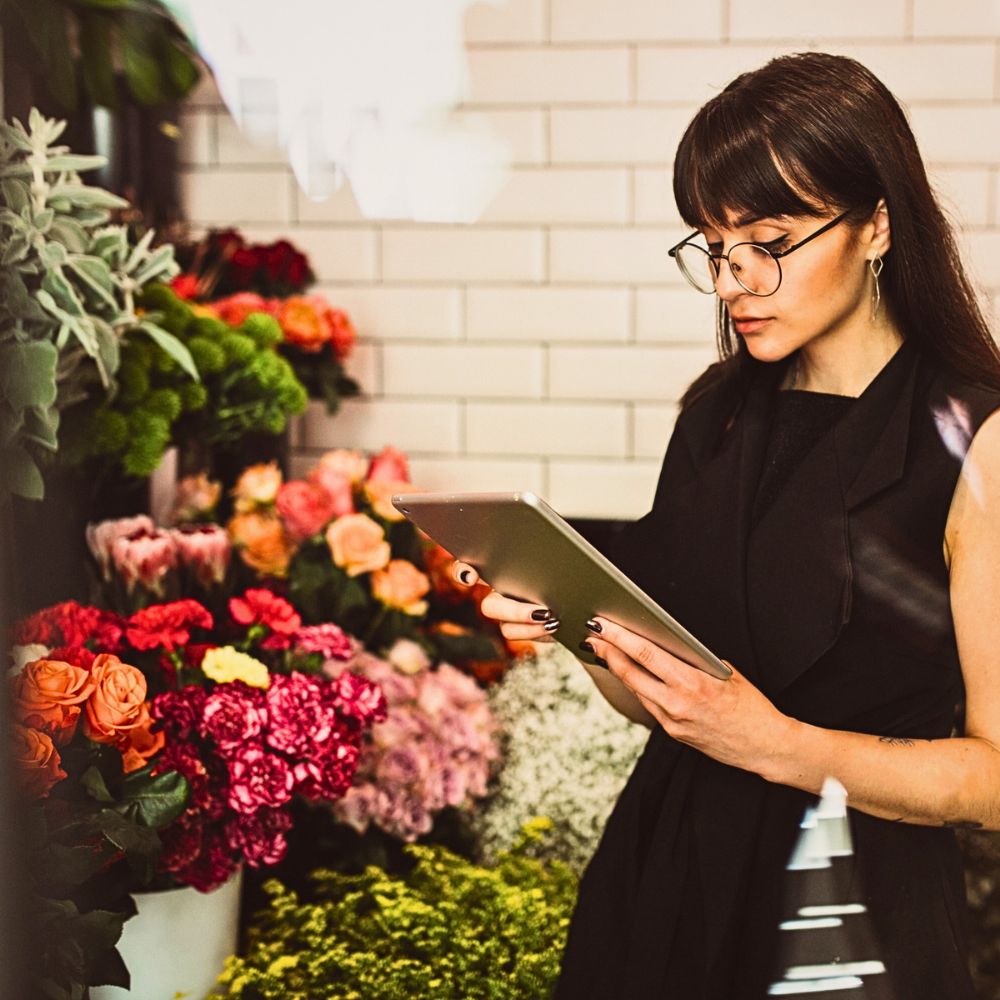
These technologies build greater equity and resilience in an industry often challenged by opacity and fragmentation. And, with the floriculture industry increasingly embracing newer innovations, blockchain could be one of those innovations poised to become an indispensable cog for sustainable, transparent, traceable, and ethical flower supply chains.
Header image by jcomp.

